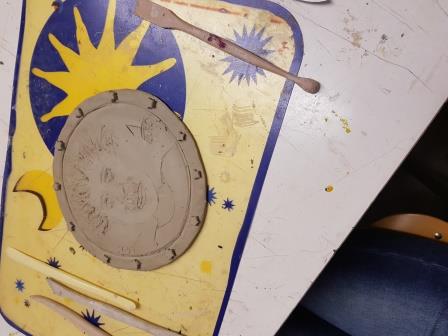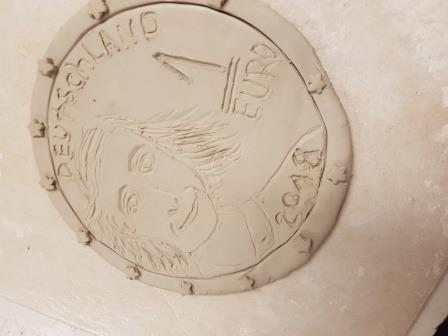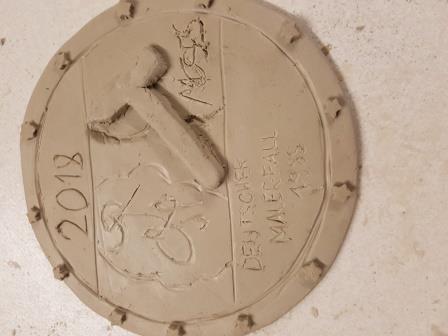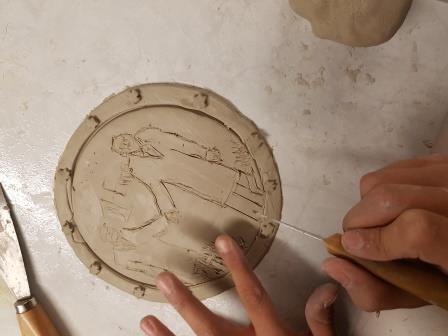https://docs.google.com/forms/d/1lOsliRr-dwYtl2hTljpDTCBHBpXkcuM9R-f1UTDD0b4/prefill
Albert Einstein

Albert Einstein was a german scientist who was born on March 14th 1879 in Ulm, Germany. Moreprecise he was a mathematician and physicist who discovered many things such as the general
theory of relativity which he is best known for.
He is considered the most influential physicist and one of the smartest people of the 20th century
as he developed most of the foundation of modern physics which other scientists build their
inventions and discoveries on. Thus he is one of the most important and best known scientists
ever.
Many institutions for education are named after him in remembrance of his work.
His Inventions & Discoveries:
In 1905 he discovered Photons and came up with the idea that light is made up of these particles.
As this was an important discovery for many branches of science he was awarded the Nobel Prize
of physics in 1921 for this discovery.
Later he developed the Bose-Einstein Condensate with Satyendra Bose which is another state of
matter used in cool stuff like lasers and superconductors.
He also made discoveries that helped moving forward in the understanding of the world and
quantum physics and thus the universe.
His work (especially the theory of relativity) was key to the development of the atomic bomb.
In 1939 he warned U.S. president Roosevelt of s possible Nazi bomb and suggested urgently for
the U.S to create their own nuclear weapons.
In 1946 he founded the Emergeny Committee of Atomic Scientists to set limits to the usage of
nuclear weapons. He as well worked with the United Nations to have nuclear weapons as a
deterrent to conflict.
Nevertheless Albert Einstein didn’t have an easy life. He was of jewish origin and had to face a lot
of nationalistic hatred against him. At that time in Germany no jews were allowed to hold jobs at
universities or other officials.
After being targeted to be killed by the Nazis he eventually fled Germany and immigrated the U.S.
in 193 where he became a professor at Princeton University .
Furthermore the Nazis tried to influence other scientists to label his work „jewish physics“.
Considering what importance Einstein’s inventions and discoveries had and still have, which
difficulties and troubles Einstein had to overcome and especially his global significance I think he is
definitely worth being shown on the next euro coin. by Greta
Anne Frank - diarist

- Jewish origin (tribute to Germany's dark past)
- representation: no antisemitism
- values: basic goodness of human beings
Goethe (no clay coin available)
Who should be on the €uro coin?
Johann Wolfgang von Goethe, born on the 28th of August 1749, was a German poet, and statesman. He is considered to be one of the most influential German writers of that time period, as he affected and developed the German poetry.
First of all, to give you an overview of the person of Johann von Goethe, I will start at his early stages of his life. Goethe was born into a rich family. His mother, Catharina Elisabeth Textor, was a daughter of one of Frankfurt’s most senior officials. His father, Johann Casper Goethe, dedicated himself to the collection of books and paintings, while devoting himself to the education of his children. Due to the value of education in his family Goethe’s parents decided to hire tutors to teach him and his sister. After the age of 16, his father tried to convince Goethe to study law, which he eventually did in Leipzig. While there, he fell in love with the daughter of an innkeeper, who declined him, to marry another lawyer. Out of revenge he would start to write his first play, which be published in 1787. This incident also caused his character to change and his health to decline. In 1768 he returned to Frankfurt without a decree and a worsening health status. He would later move to Strasbourg for one year, fall in love again, but then abandon the woman unexpectedly, and move back to Frankfurt. Goethe continued on to write poems, plays, practice law, and establish working relationships with other famous people of that time (e.g. Schiller).
With Schiller he would go on to gain increasing popularity. In 1797 they would write multiple ballads together, as well as concentrating further on the “Theory of literary genres”. His now close friend told him to enhance and finish his works of “Faust”, during this time. In 1803 Goethe would be named the head of the natural sciences branch of the University of Jena. One year later he would also be called up to the so-called “Geheimrat”, which served the duty of advising the ruler.
In the following year his closest friend, Schiller, died. It would greatly influence his focuses on society, as well as writing. Goethe focused on poems in the succeeding years. He would also finish the first part of his work of “Faust”. Goethe went on to marry his wife, who would die in 1816. During this time he would finish many more works of his, and would be named minister of state. In the years leading up to his death he would meet his last love, finish the second part of “Faust”, and the last part of his autobiography. His son would die in October of 1830, causing him to become sick again. In 1832 he would eventually die.
To sum up, I would suggest Johann Wolfgang von Goethe as a representative on the €uro coin, as he had great influence on German literature, as well as the state at that time. His legacy, which extends far further than his lifetime, should be honored by expressing him on the €uro coin
The Fall of the Berlin Wall
The fall of the Berlin Wall is a sign of unity - Germany isn’t separated into DDR and West anymore but is ONE country in unity.
Most people weren’t happy during the time of the wall as everything was controlled. That meant no freedom, no democracy and no living together of people with different cultures and ideas etc.. Furthermore not everyone was allowed to pass the wall. Altogether that caused a lot of people to fear and dislike the wall.
Tearing down the wall made an end to controlling and gave people the freedom they wished, everyone could go anywhere in Europe. Moreover the soviet union and the Warsaw pact broke apart so that the bordering states like Poland, Czechoslovakia, Romania, Hungary and the Balcan states got independent and most of them became members of the european union. In other words the „iron curtain“ fell. That meant an economically and strategic benefit.
The people’s reaction itself shows that freedom and unity is better than being separated and controlled.
After the fall of the wall the bases of the european union were granted again so that all european union members could live together as one nation. Thus the fall of the Berlin Wall can be seen as a symbol for the importance of unity as it shows that life is better if lived on the bases of the european union in one unity.
All this reasons why The fall of the Berlin Wall should be on the euro coin.

Mitterand and Kohl holding hands in front of the graves in Verdun
The history of France and Germany is a very troublesome history. The two countries have been constantly at war, in the Middle of Europe. France was occupied by the German Nazis and did really horrible things. Verdun was a very big battlefield in France. The French and German president holding hands is a great picture which shows that it is always better to reach out and be friends than to fight.
